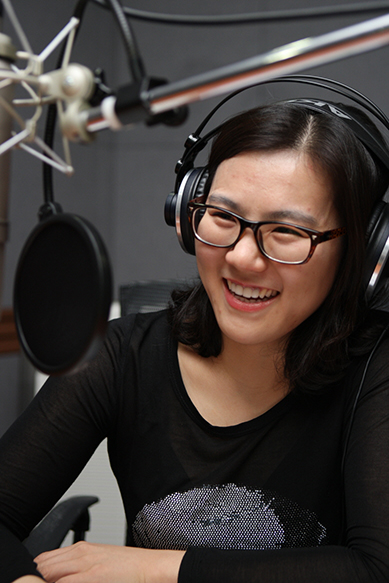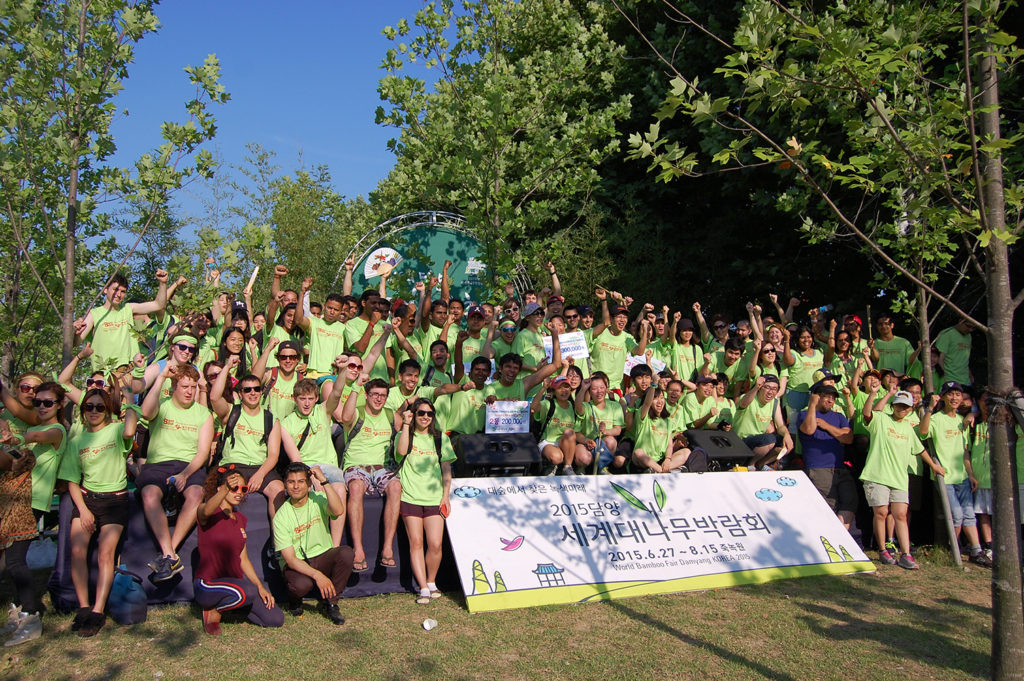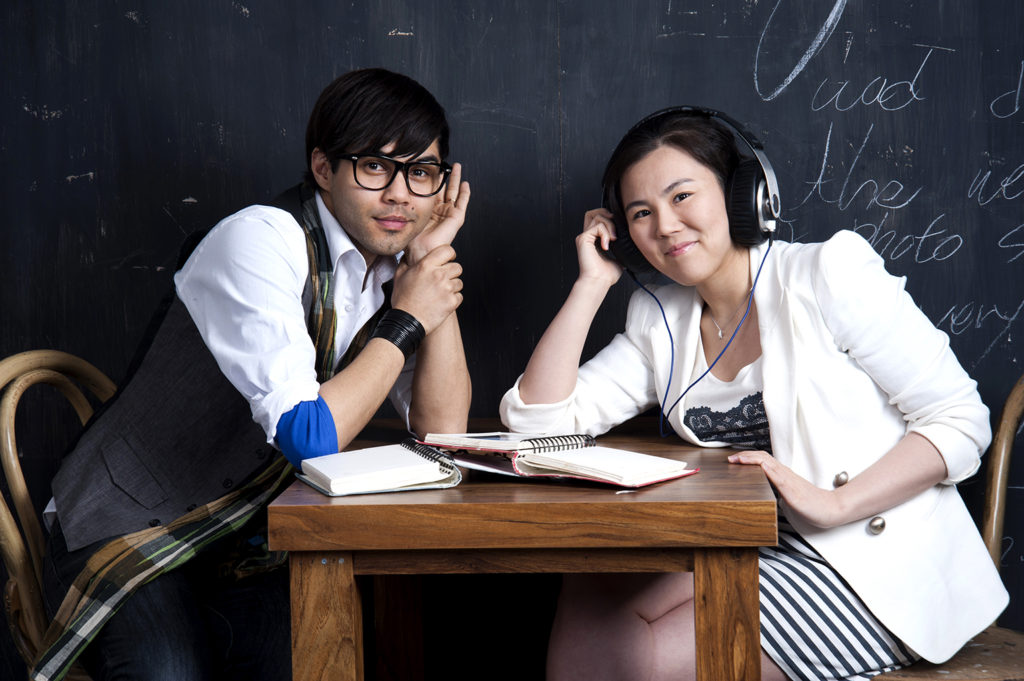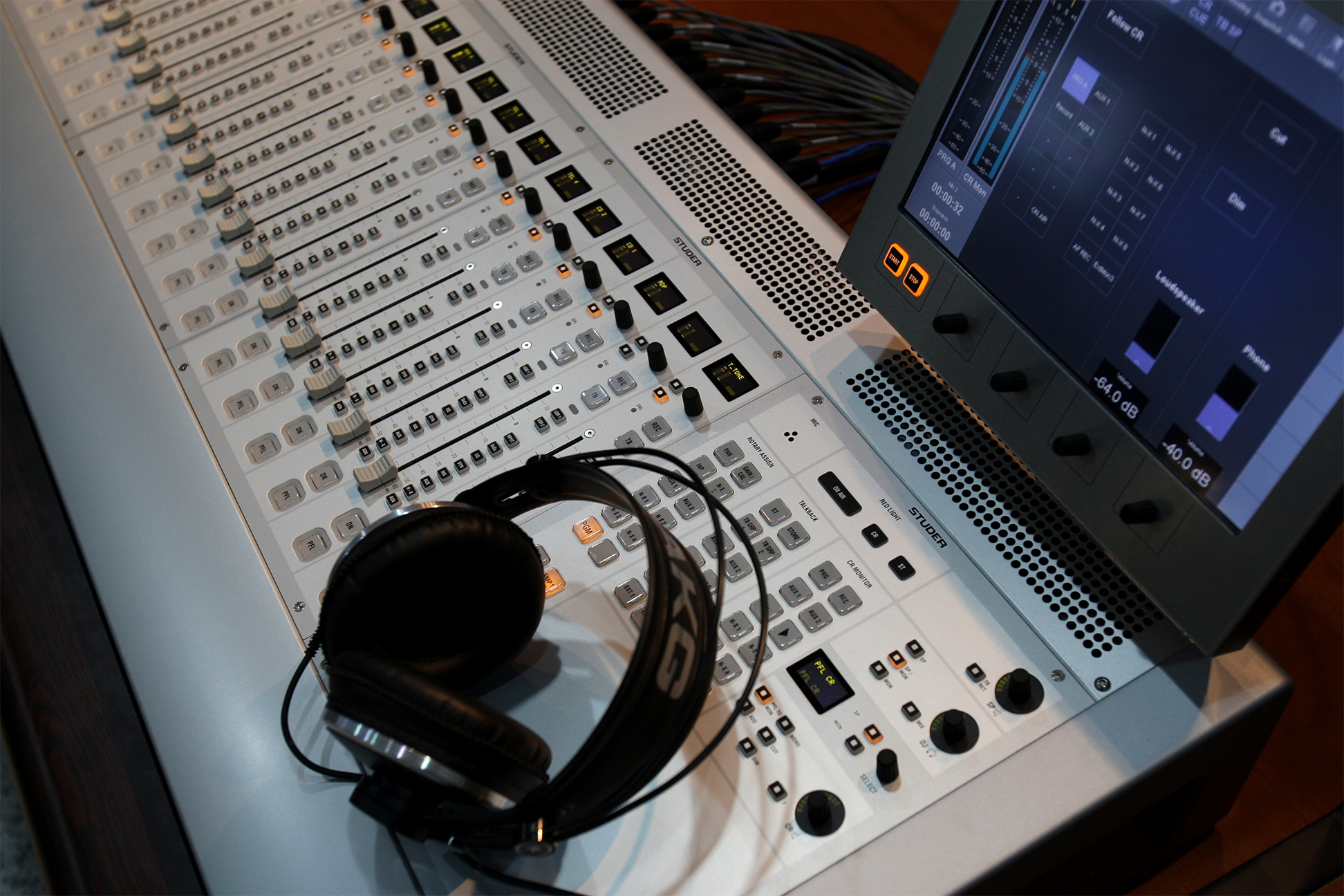GFN at 12
Serving the Community.
Interview with Han Soo-hee.
In continuing its collaboration with the Gwangju Foreign Language Network (GFN), in this issue the Gwangju News offers an interview with GFN’s program director in charge of the City of Light, which is changing its format starting this month. To gain an insight into the important changes that are taking place, the Gwangju News obtained this interview with Han Soo-hee. — Ed.
By Melline Galani.
Gwangju News (GN): Thank you for taking the time to do this interview for the Gwangju News, Ms. Han. First, please introduce yourself by telling us a little about your background, GFN, and your career at the radio station.
Han Soo-hee: First of all, thank you, Gwangju News, for offering me this opportunity. My name is Han Soo-hee (한수희), and I have been working at GFN since 2009. After graduating with a degree in fine arts from the University of British Columbia in Canada in 2008, I returned to Korea and applied to the Department of Western Painting at Ewha Womans Graduate School. Meanwhile, I was working part-time as an English academy teacher in Gwangju, where my mother lived, when I saw an advertisement for a position at an English radio station for a producer who could speak English well, my old dream came back to me.

At the time, I was wondering if it would be possible to abandon my art major, which I had studied hard for four years, and go into broadcasting instead. I had a lot of questions in my head, but I thought it would be possible – “If I had the creativity to draw and paint on white paper then I could do broadcasting, too,” I thought. I also thought it would be good to take up my old dream of going into broadcasting, but I didn’t submit my resume until the last day of the application period. After passing one written test and two interviews, I was selected and soon began my new life, and now I am a program director (PD) at GFN. The job of creating something out of nothing as a PD was fun enough to help me forget about art, which had been my previous love. Perhaps the reason why I have stayed with this job for twelve years is because it is a great source of happiness for me to create programs that entertain and to communicate with listeners.
GN: What are the main shows or programs that you coordinate and what are your future plans in relation to them?
Han Soo-hee: At present, I am the PD for the City of Light show (since the beginning of 2021). Before this program, I was the PD in charge of K-Popular, The Afternoon Show with JD, and Hello Korea.
Having just joined GFN and without experience in broadcasting, I began my career in broadcasting by assisting seniors as an AD (assistant director) for about a year and a half, and then I was put in charge of the K-Popular show for seven years. That period, when I was the producer and the host of the program, was a very difficult time for someone young and inexperienced, especially since in Korean companies, strict rules and regulations exist, but I was a free soul who had just returned from college abroad. However, like the saying that “time is medicine,” I was able to develop into a more mature person after experiencing all the difficulties that occurred during my twelve years of continually producing programs.

After doing the K-Popular music program for a long time, I was next put in charge of the cultural program The Afternoon Show with JD for a while, and I also produced a program called Hello Korea that informed about different aspects about Korea. I visited schools in Gwangju and Jeonnam and was in charge of Radio Star, an open broadcast with various students. In addition, I produced various documentaries, among which two are the most memorable. One, called Yeong-Honam Pungryu Journey – Arirang Road, was about foreign musicians from Busan and Gwangju who loved the sound of Korea. It was a documentary that reflected the true meaning of the song “Arirang,” which foreigners reproduced and sang by participating in the Daegu Arirang Festival, and by going to Jindo, Miryang, and Hadong with foreign pungmul bands.
The second documentary was titled A Mother’s 38-Year Dark Silence and presented testimonies of the victims of state violence, including sexual assaults (rapes) committed by martial law forces during the May 18 Gwangju Democratization Movement. It was made together with our chief producer, Kim Mi-young. The experience of listening to a victim of sexual violence and feeling her wounds and pained heart was an unforgettable moment in my life. This documentary, which won four gold medals, is like a child with a sensitive heart to me.
Part of my position at GFN has also involved planning various regional events, in addition to broadcast programs. These include the GFN Pop Song Contest, which was first conducted at the Hampyeong Butterfly Festival; the Scavenger Hunt in Yangnim, a historical treasure hunt in Yangnim-dong; and the Amazing Race in Wangin, a historical treasure hunt at the Yeongam Chrysanthemum Festival – all of which we planned for everyone residing in Gwangju and Jeonnam to enjoy. I also should not leave out the Damyang Bamboo Festival, where we prepared an event called the Foreign Expedition in the Forest. All of these programs were a meaningful time to meet with foreigners in person and make memories to enjoy together.

Working at GFN for such a long time, produces so many memories that I remember, but not all of them were pleasant. While working as a program host, I offended some listeners with stories about their relatives that even they were not aware of, and I was hurt by them when some sent malicious messages asking why I was in charge of hosting when my English and pronunciation were not good. However, if it were not for the cheering messages from listeners who loved the program and the members of the program production team, I think that I would not be the person that I am today. There are still people who remember me and love me, and I would like to tell them through this interview that I am always grateful.
GN: On Sunday mornings, GFN does an “exchange” with a station in Busan (which we enjoy very much). Why do you think this is an important initiative?
Han Soo-hee: Busan English Broadcasting and GFN have been promoting a lot of work together since they started broadcasting. I co-produced many programs and documentaries with them, starting with the Yeong-Honam Pungryu Journey – Arirang Road. Currently, we are exchanging regular programs on weekends. Also, we are presently applying for broadcasting support for a program that the Yeongnam and Honam regions can do together. It may be only my personal opinion, but I think the way GFN and Busan produce programs together is a symbol of harmony that connects the Yeongnam and Honam regions. In the future, we want to carry out various programs and events beyond our two regions.
GN: How does the show City of Light serve both the Korean and expat communities, and what are the challenges faced in doing this?
Han Soo-hee: I think City of Light is a program that provides information for both the Korean and foreign communities, and delivers current Korean events and cultural information, especially for foreigners living in Gwangju and Jeollanam-do. For example, during the show, domestic and local news is translated into English and delivered. Many foreign residents can easily access domestic news, but local news does not often get translated into English. However, I think that local news and information is important for foreigners.

Therefore, City of Light delivers local, cultural, and event-related news and information that listeners can enjoy. There are also sections where one can study Korean, as well as sections where one can learn about Korean laws from an international lawyer. Having said this, this show is a program for both Koreans and foreigners, helping the former practice English while providing the latter with current events in English. Moreover, there is a section that informs Korean listeners about difficult poems and English words.
What is more, City of Light presents events hosted by resident foreigners and other organizations such as the Gwangju International Center (GIC), and also provides opportunities for Koreans to participate in foreign community events and for foreigners to participate in local Korean events.
GN: What changes in programming are you planning, or at least considering, for GFN’s future?
Han Soo-hee: According to the GFN listener behavior survey, Korean listeners are experiencing difficulties in listening because the language barrier is so great. Our aim is to have programs that are not difficult to listen to for both Koreans and foreigners. As a result of a meeting with program producers in January this year, we are considering producing bilingual programs that combine English and Korean. Broadcasting is scheduled to be reorganized this March, when the City of Light will be reorganized into a new bilingual program. Please show a lot of interest and love for the new program.
GN: Since the GIC, of which the Gwangju News is a part, is committed to serving the expat community in Gwangju and the surrounding area, how do you think we might collaborate to better serve this community?
Han Soo-hee: In my opinion, both GFN and the GIC are important organizations for Koreans and foreigners in the Gwangju-Jeonnam area. It is true that for those who live abroad, information is discovered much later or is altogether less known than for locals in that country. However, the Korean community tries its best to provide information and help expats who live in the region. Likewise, I think the GIC and GFN are doing their best for the foreign community. For example, the introduction of the tracking information on confirmed COVID-19 cases provided by both organizations in English has been a really important help to the foreign community. I think our two organizations should share important information related to disasters as they are underway and together become a medium that serves more and more foreign communities. When the COVID-19 pandemic ends, I think there is a need for further cooperation between GFN and the GIC to jointly hold events or record lectures and broadcast them. In addition, GFN plans to hold many cultural events for foreigners to enjoy, and I think we need cooperation to share, promote, and proceed with these events together.

In conclusion, I would like to add that whenever I hear that many foreigners forget their homesickness while listening to our broadcasts, I feel proud. For the past twelve years, we have tried our best, and I think the reason why GFN has been able to maintain itself for such a long time is because of foreigners and Korean listeners who show interest and give support. Please continue to love GFN. Thank you.
GN: Thank you very much for your time. The Gwangju News and the GIC support and love the variety in the programs that GFN produces and encourage everyone to tune in daily.
Photographs courtesy of Han Soo-hee and GFN.





